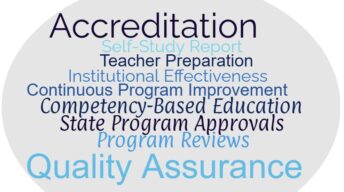The Drive-Thru Approach to Teacher Preparation
I read yet another article about national teacher shortages; this one was entitled Teacher Shortages Spur a Nationwide Hiring Scramble (Credentials Optional). As a result of their desperation to staff classrooms, school district officials are putting pressure on states to relax teacher licensure requirements. In some cases, this has led to the watering down of standards and expectations. Some are taking advantage of the current climate, smelling the sweet aroma of serious revenue by offering what is essentially a drive-thru teacher preparation program: The “customer” arrives at the window, attracted by the bright lights and yummy-looking food pics. Enrollment counselors take their order and send them on. Worker bees behind the scenes serve up a program that may be of questionable or untested quality and the customer is on their way in record time. They don’t know that their fries were cold or there was no straw until they are miles down the road. Programs know such a model is cheap to build and cheap to operate; it’s easy money and there are so many students rolling through the drive-thru lane that they can afford to have some unhappy customers and still turn a profit.
In the short term, school districts are happy because they have a less difficult time hiring teachers, and program completers are happy because they’ve gotten through their program at break-neck speed and haven’t had to “waste” their time on courses they perceive as useless. However, in the long term, a host of new cyclical problems are revealed, including:
- Individuals are admitted to the programs who really shouldn’t be—they sometimes lack the academic preparation or the professional dispositions necessary for success in the classroom.
- Program completers are often ill-prepared to enter the classroom; they require a great deal of on-site training by the school district.
- Many new teachers quickly become disillusioned and leave the profession because they didn’t know how challenging teaching really can be. Some leave in the middle of a school year.
- Students often suffer due to constant turnover and lack of consistency.
- Test scores lag and fall behind state averages; impact outcomes tend to be dismal.
Not all for-profit alternative certification programs are of poor quality, but many are. While accrediting bodies have recently come under greater scrutiny for their standards and expectations, many of these programs fly under the radar and are not regionally accredited*, which is the foundational accreditation any legitimate institution of higher education should attain. Some are taking the easy path to accreditation through bodies that focus mostly on career schools** such as beauty schools, truck driving schools, at-home hypnosis training, etc. just to state on their program’s website that they are accredited. These programs use “sleight of hand” language with the lay public, saying they are “accreditation eligible” which in reality means nothing but it sounds very convincing to those who are not well versed in the lingo. Make no mistake: The drive-thru teacher preparation model is very real, and it is having a very real impact on our P-12 schools. The question is: Are we going to accept it as the new normal, or are we finally going to draw a line in the sand and insist on academic excellence for our children?
Dr. Roberta Ross-Fisher is a national leader in quality assurance, educator preparation, and empowerment-based learning. She supports educational institutions in areas such as accreditation, institutional effectiveness, competency-based education, and virtual teaching & learning. Roberta can be contacted for consultations, webinars, and on-site workshops through her site (www.robertarossfisher.com).
*The regional accreditation bodies in the United States include: (1) Higher Learning Commission (HLC); (2) Middle States Commission on Higher Education (MSCHE); (3) New England Association of Schools and Colleges (NEASC-CIHE) Commission on Institutions of Higher Education; (4) Southern Association of Colleges and Schools Commission on Colleges (SACSCOC); and (5) WASC Senior College and University Commission (WSCUC).
**The Distance Education Accrediting Commission (DEAC) awards accreditation to degree-granting, high school, military, and post-secondary schools. A search of accredited post-secondary schools, which would apply to alternative teacher certification programs, includes the Hypnosis Motivation Institute, At-Home Professions, and the Modern Gun School, to name a few.

